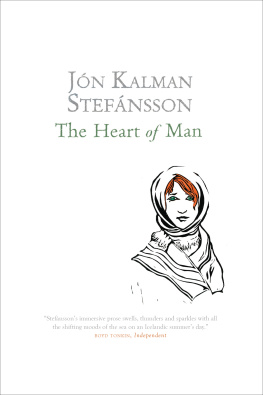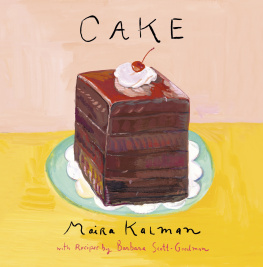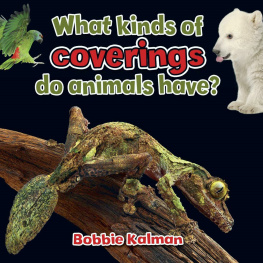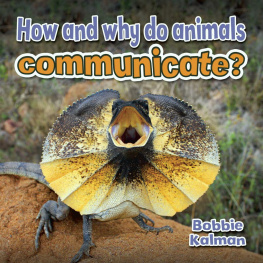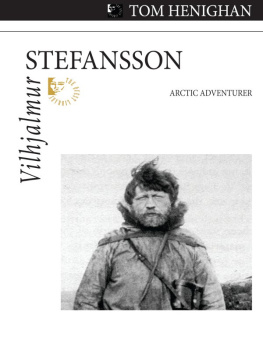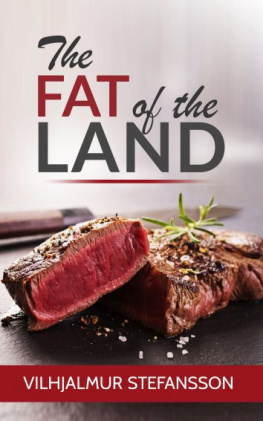Jón Kalman Stefánsson - Fish Have No Feet
Here you can read online Jón Kalman Stefánsson - Fish Have No Feet full text of the book (entire story) in english for free. Download pdf and epub, get meaning, cover and reviews about this ebook. year: 2016, publisher: Quercus, genre: Art. Description of the work, (preface) as well as reviews are available. Best literature library LitArk.com created for fans of good reading and offers a wide selection of genres:
Romance novel
Science fiction
Adventure
Detective
Science
History
Home and family
Prose
Art
Politics
Computer
Non-fiction
Religion
Business
Children
Humor
Choose a favorite category and find really read worthwhile books. Enjoy immersion in the world of imagination, feel the emotions of the characters or learn something new for yourself, make an fascinating discovery.

- Book:Fish Have No Feet
- Author:
- Publisher:Quercus
- Genre:
- Year:2016
- Rating:5 / 5
- Favourites:Add to favourites
- Your mark:
- 100
- 1
- 2
- 3
- 4
- 5
Fish Have No Feet: summary, description and annotation
We offer to read an annotation, description, summary or preface (depends on what the author of the book "Fish Have No Feet" wrote himself). If you haven't found the necessary information about the book — write in the comments, we will try to find it.
Fish Have No Feet — read online for free the complete book (whole text) full work
Below is the text of the book, divided by pages. System saving the place of the last page read, allows you to conveniently read the book "Fish Have No Feet" online for free, without having to search again every time where you left off. Put a bookmark, and you can go to the page where you finished reading at any time.
Font size:
Interval:
Bookmark:
First published in the Icelandic language as Fiskarnir hafa enga ftur in 2013
First published in Great Britain in 2016 by
MacLehose Press
An imprint of Quercus Editions Limited
Carmelite House
50 Victoria Embankment
London EC4Y 0DZ
Copyright Jn Kalman Stefnsson, 2013
English translation copyright 2016 by Philip Roughton
Edited by Andrea P. A. Belloli
Co-funded by the Creative Europe Programme

The moral right of Jn Kalman Stefnsson to be identified as the author of this work has been asserted in accordance with the Copyright, Designs and Patents Act, 1988.
Philip Roughton asserts his moral right to be identified as the translator of the work.
All rights reserved. No part of this publication may be reproduced or transmitted in any form or by any means, electronic or mechanical, including photocopy, recording, or any information storage and retrieval system, without permission in writing from the publisher.
A CIP catalogue record for this book is available from the British Library
Ebook ISBN 978 0 85705 440 1
Print ISBN 978 0 85705 441 8
This book is a work of fiction. Names, characters, businesses, organizations, places and events are either the product of the authors imagination or are used fictitiously. Any resemblance to actual persons, living or dead, events or locales is entirely coincidental.
You can find this and many other great books at:
www.quercusbooks.co.uk
Heaven and Hell (2010)
The Sorrow of Angels (2013)
The Heart of Man (2015)
Not even the sun could stop it, certainly not beautiful words like rainbow and love; they were useless, it was best to toss them in the bin it all began with death.
We have so much: God, prayers, music, technology, science, new discoveries every day, more sophisticated mobile phones, more powerful telescopes, but then someone dies and youre left with nothing, you grope for God and grab hold of disappointment, grab hold of his coffee cup, the brush with her hairs still caught in it, hold on to it like a consolation, like magic, like tears, like that which never returns. What is there to say? Probably nothing, life is incomprehensible, its unfair, but we live it anyway, cant avoid it, know no other way, life is the only certainty, that treasure, that worthless junk. After life there may be nothing. Yet it all began with death.
No, that cant be right, because death is the end, the thing that silences us, takes the pencil from us in mid-sentence, turns off the computer, makes the sun vanish, the sky burn, death is futility incarnate, we must absolutely not permit it to begin, it isnt allowed. Death is a fallacy of Gods, its what was created when God, perhaps in despair, fused cruelty and regret when it looked as if His Patience game of creation wasnt going to work. But in every death, theres a new life
PRESENT
Keflavk doesnt exist,
from ICELAND
In Keflavk there are three cardinal directions:
the wind, the sea and eternity
Valueless, and nowhere
has the sky been measured to be
further from the earth
I mean no disrespect, but Ari is the only person who could have dragged me back here, across the expanse of black lava that ground to a painful halt hundreds of years ago, naked in places, but elsewhere moss has softened and soothed it, clothed it in silence and serenity; you drive out of Reykjavk past the long aluminium smelter and into the lava, which at first is an old scream, and then moss-covered silence.
The sky is overcast, dark clouds have suffocated Decembers reluctant light, and the lava is like night on both sides of Reykjanes Highway. The kindled streetlamps line the highway with their steadfast light that keeps watch over you and robs you of stars and scenery, light that blocks your vision. I drive through greyness and memories, through lava and uncertain feelings, those who leave never return, yet Im returning, not hesitantly but at 110 kilometres per hour, to Keflavk.
Keflavk, which doesnt exist.
I dont know if it has to do with that cheeky line, with the truth of the poem its from, but going to Keflavk is always like driving out of the world and into non-existence. Yet its a mere twenty-minute drive from the long aluminium smelter and the vapid vegetation surrounding it until the first buildings of Njarvk rise out of the lava, cloaked in damp greyness and absurdity. This strange marvel, that life should exist here, never ceases to baffle me and Ari; that people live here, that there are quite a few buildings theres something about it all that defies common sense, historical reasoning. Dont get me wrong, Njarvks buildings and houses shouldnt surprise me Ive been prepared for them. A little over halfway to Keflavk, Stapi comes into view on my right, the village that lived off the military but now dozes, half-sunk in the lava beneath Stapi, the big cliff after which the village is named, jutting into the unsettled sea like a giant fist or scream. A few kilometres further on, a large sign appears, a name that flashes slowly, like a heavy heartbeat, above the rushing vehicles:
REYKJANESBR
Flashes like a warning to passers-by, their last chance to turn back, the world ends here.
Reykjanesbr, the humdrum alias for three villages whose old names were Njarvk, Keflavk, Hafnir.
Ten thousand people. And a quota-less sea.
I dont turn back, drive past the warning sign, drive out of the world, and am soon confronted with things that are difficult to understand; first of all the giant hangar on the old Base, for the longest time Icelands biggest building, constructed by the American military, its size a confirmation of that countrys military superiority then the houses of Njarvk rise from the lava, and beyond them lies Keflavk, the town where Ari and I spent important years of our lives, a place with three cardinal directions.
Iceland is a harsh land, it says somewhere, and barely habitable in bad years. Surely theres no truer statement: the mountains are foul-tempered, their slopes are deadly, the wind can be merciless, the chill breezes exasperating. A harsh land, and the Icelanders were nearly wiped out twice by hardship, disease, volcanic eruptions, and Keflavk is undoubtedly the most dubious place in the entire country. Compared to Keflavk, both Biskupstungur and the Skagafjrur countryside seem almost paradisical, reflecting the tenderness of lands much further south. If the fishing failed, there was little else to save us; brackish, gale-force winds pounded the population, life-giving rainwater vanished along with hope into the lava, and nowhere has the sky been measured to be further from the earth than here. Valueless, says the eighteenth-century Land Register by rni Magnsson and Pll Vdaln, the first comprehensive description of Keflavk, written with the impartiality of scientists. They had no time for poetry, emotion, condemnation; these were superseded by perspicacity and candour: No ships linger here; the landings are poor. No meadows for grazing, the outer pastures in better shape but the water supply as poor as can be summer and winter. The path to the church long and very often impassable in winter. Nowhere in the entire country do folk dwell as close to death.
Ari and I left Keflavk in the late 1980s, boarded a bus with the things that mattered to us clothing, memories, books, record albums and never looked back. The bus driver, a respectable old man with silvery-grey hair, endowed with a good-natured serenity, slipped a tape into the cassette player at the start of the journey and turned the volume up, having become partially deaf, and all the way to Reykjavk, Wham! blasted over us like a cruel punishment. We made our way slowly out of Keflavk, past the harbour, alongside the Base with its fighter jets and six thousand Americans, all of whom are gone now, having left several years ago, taking with them their weapons and death, employment and hamburgers, radio station and dance clubs, leaving nothing but abandoned buildings and unemployment.
Next pageFont size:
Interval:
Bookmark:
Similar books «Fish Have No Feet»
Look at similar books to Fish Have No Feet. We have selected literature similar in name and meaning in the hope of providing readers with more options to find new, interesting, not yet read works.
Discussion, reviews of the book Fish Have No Feet and just readers' own opinions. Leave your comments, write what you think about the work, its meaning or the main characters. Specify what exactly you liked and what you didn't like, and why you think so.

